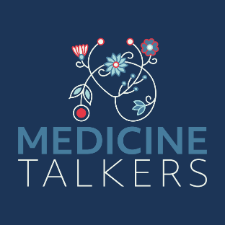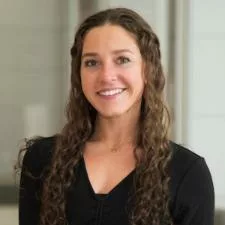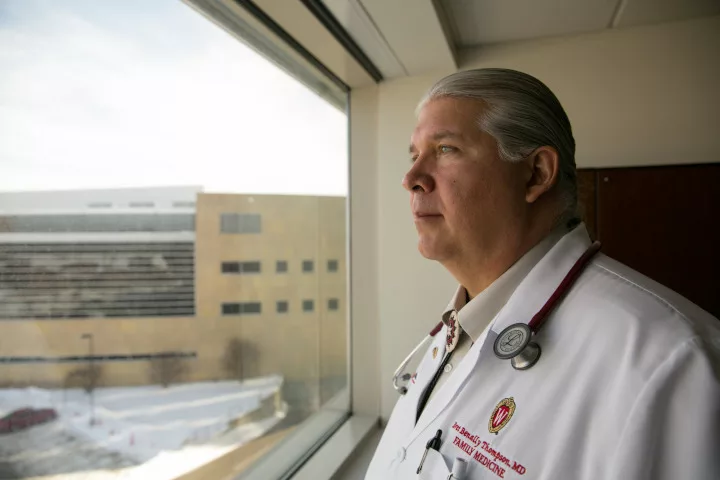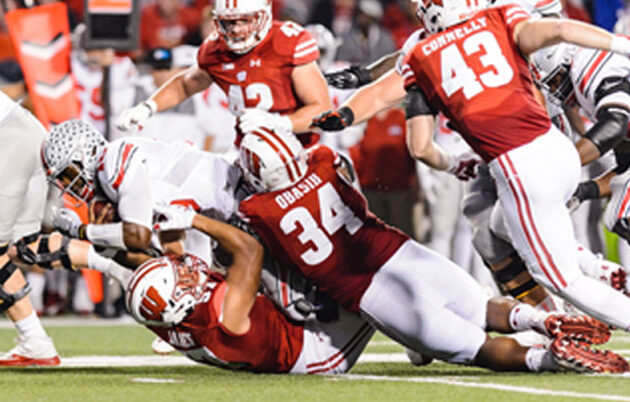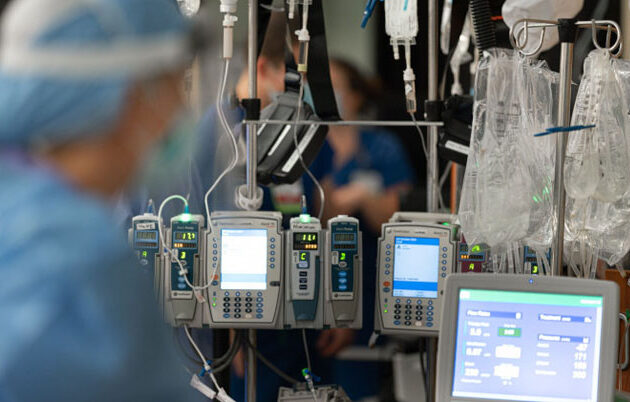The oldest of five and a first-generation college student, Jordan grew up outside of Green Bay near the Oneida Reservation. Throughout high school and her undergraduate years at Carroll University studying biology, she shadowed health care professionals on the reservation until she found her passion for physical therapy.
Besides the practice of physical therapy itself, her experience working with Sid White, DPT, MPT, CSCS, and Connie Danforth, PTA, was unique because of all the other health care professionals she shadowed, they were the only ones who were also members of the Oneida Nation.
“I think that played a huge role in how I felt about physical therapy,” Jordan says. “I saw that connection and rapport with the tribal patients, their neighbors, they had. The dedication to their community showed through their practice. The representation of Natives in such a professional role was a huge factor drawing my attention to this field.”
Armed with her interest in physical therapy, she found her way to the Native American Center for Health Professions while exploring the Doctor of Physical Therapy program at the University of Wisconsin School of Medicine and Public Health. She was first connected with Melissa Metoxen, NACHP assistant director, who is also a member of the Oneida Nation.
Jordan came to Madison for the first time and Lina Martin (Ho-Chunk Nation and Stockbridge-Munsee), NACHP Advocate for Uplifting Native Traditions and Indigenous Engagement (NACHP AUNTIE), and the rest of the team showed her around campus and the School of Medicine and Public Health (SMPH) and NACHP facilities. The center, along with Oneida’s higher education department, helped her navigate much of the process of being accepted into the PT program in 2019.
“Being a first-generation college student, everything is confusing because you don’t know where to start or what you’re supposed to be doing at a certain time,” she explains. “There were service hours I needed, transcripts to order, vaccination records to submit, and numerous forms to fill out. There was always something else around the corner. NACHP helped me immensely throughout this process. It’s a big part of why I chose the PT program at SMPH.”
During her second year in the program she joined a student organization called Advancing Diversity and Excellence in Physical Therapy (ADEPT). She helped lead a partnership with the UW–Madison chapter of American Indian Science and Engineering Society (AISES) to develop more programming and outreach to local high school and middle school students. She recalls how they asked many similar questions about college and professions like physical therapy that she had.
Throughout her time in the program, NACHP has been a constant presence, she says, offering academic and personal support and cultural events like powwows and beading workshops. Even during the COVID-19 pandemic, NACHP staff pivoted the beloved “family dinners” to a virtual format.
Now in her third and final year, she has an interest in travel physical therapy, where therapists travel the country on assignment to fill in for other therapists or bring services to an underserved area. She is passionate as well about working in a tribal setting.
“It would be so rewarding to be able to serve my tribe,” she says. “As a first-generation Native student, I know I have my whole family and tribal community’s support. I hope one day to be in a representative role for someone else.”
Bret Benally Thompson, MD – Storied career leads to role as a palliative care physician
His colleagues joke that like a cat’s nine lives, he has had nine careers. But to Bret Benally Thompson (White Earth Ojibwe), MD, a life that led him to medical school at age 40 happened just as it was meant to. It had been his dream all along.
Today he is an assistant professor of medicine, palliative care physician at UW Health and UnityPoint Health – Meriter, and a faculty advisor for the Native American Center for Professions (NACHP) housed in the University of Wisconsin School of Medicine and Public Health. He also serves as the principal investigator for NACHP’s Indians Into Medicine (INMED) grant.
His journey to medicine spanned the White Earth Nation and states like Minnesota, Nebraska, Montana, Texas, Colorado, and Wisconsin — and careers as a rancher, deputy sheriff, army national guard member, and emergency medical technician. He finally entered medical school at the University of Minnesota, Duluth at the age of 40.
An interest in family medicine took Benally Thompson to a residency in Anchorage, Alaska. But the self-proclaimed storyteller wasn’t fulfilled by talking with patients for just a few minutes during their clinic appointment. A rotation in palliative care unlocked a new passion.
“In the family clinic setting you have these beautiful moments when the door closes and you get to share in people’s lives, but it is only a short time,” he says. “Then I discovered palliative care, which really resonated with me because the goal is to listen to a person and get to know them, their family, and the care they need.”
Now working as a palliative care physician in hospitals at UW Health and UnityPoint Health – Meriter, Benally Thompson cares for individuals with serious and complex illness. Palliative care physicians meet with patients, and often their families, to think through the best choices for treatment while considering the bigger picture.
“Palliative means ‘to cloak,’ which I actually don’t think is the best way to describe our work,” he explains. “Instead we uncover things in palliative care through close and careful communication with patients and their families. We look at not just the disease but at who they are in their community, their family, their own lives and make value-based decisions about what the best treatment is for them physically, emotionally, and spiritually as a person.”
Palliative care physicians are involved in hospice care at the end of a patient’s life, helping with support and communication between patients and their families and care teams of doctors, nurses, social workers, and chaplains. They are also experts in what is called symptom management, such as alleviating pain, shortness of breath, or nausea.
